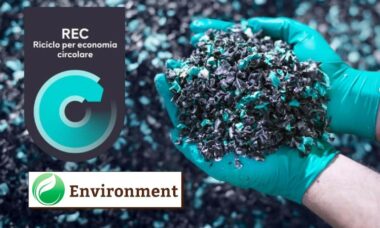 Philip Morris in Italy has launched a project that aims to recycle up to 500,000 heated tobacco devices by the end of 2024, reusing more than 80% of their raw materials.
Philip Morris in Italy has launched a project that aims to recycle up to 500,000 heated tobacco devices by the end of 2024, reusing more than 80% of their raw materials.
The Recycling for Circular Economy (REC) project was launched in December 2023 and announced in January 2024. Its goal is to recycle Philip Morris’s Iqos and Lil devices and recover plastics, metals and lithium-ion batteries.
This is the second known project in Italy aimed at recycling electronic smoking devices. In November 2023, the Italian Tobacconists Federation, Logista, and the Ministry of Environment and Energy Security launched a pilot programme to recycle disposable e-cigs through a free take-back system involving tobacconists.
These projects address the increasing consumption of electronic smoking devices in Italy and the lack of consumer knowledge about how to dispose of them, as they must be disposed of in compliance with the EU Waste Electrical and Electronic Equipment (WEEE) Directive.
From Take Back to Trade In, the project is well on its way
Since the announcement of the REC project, Philip Morris has collected about 170,000 discarded Iqos and Lil devices in Italy, the recycling of which is currently underway, according to information provided to TobaccoIntelligence.
Gianluca Iannelli, head of the smoke-free products category at Philip Morris in Italy, told TobaccoIntelligence that the company’s recycling project initially involved Iqos and Lil devices returned by consumers under warranty or through “satisfied or refunded” initiatives.
These devices were deemed waste after inspections of their aesthetic and functional components showed them to be no longer usable. They were later joined by additional Iqos and Lil electronic waste that could be collected at participating Iqos stores.
When asked about the company’s strategy to achieve its goal, Iannelli said that it plans to broaden the scope of the REC project by launching its Take Back initiative.
“Starting 15th April,” he said, “thanks to Take Back, consumers can hand over their Iqos and Lil devices that they no longer use free of charge to retailers at participating stores so that they can be sent to a company specialised in the treatment of WEEE, which handles recycling activities in accordance with Philip Morris’s recovery standards.”
So far, the company has reported that approximately 70 Iqos flagship stores, including Iqos embassies, boutiques and lounges, along with roughly 2,600 tobacconists, are participating in this initiative.
Another method for collecting Philip Morris’s heated tobacco devices for the recycling project is through the company’s Trade In initiative, which enables users of previous-generation Iqos and Lil devices to drop off unused ones at participating Iqos stores in exchange for purchasing Iqos Iluma at a special price.
Raising awareness and monitoring efficiency other keys to success
In addition to these initiatives contributing to the broader REC project, Iannelli said that Philip Morris has launched a series of communication activities to raise awareness in Italy about REC among Iqos and Lil consumers through online channels and participating stores.
The company has contracted Logista to recycle Iqos and Lil devices, which, in turn, involved Treatment & Recycling of Electrical & Electronic Equipment (TREEE), a company specialising in WEEE treatment, in treating and recovering the raw materials found in device waste.
Iannelli said that Philp Morris will be able to monitor and track its project’s goal through the periodic reports detailing the amount of device waste arriving at TREEE for recycling and the percentage of materials recycled.
“We are particularly concerned about the successful completion of the REC project,” he said. “For this reason, recurring audits will be conducted on the recycling activity to monitor its efficiency.”
As well as recycling device waste for economic, social and environmental benefits and reintroducing raw materials into production cycles, Iannelli said, this project also complements Philip Morris’s integrated supply chain for smoke-free products, which involves more than 41,000 workers in the agricultural, manufacturing and consumer services sectors.
Philip Morris declined to disclose the financial terms of the REC project.
– Dario Sabaghi TobaccoIntelligence staff
Photo: Philip Morris Italia







